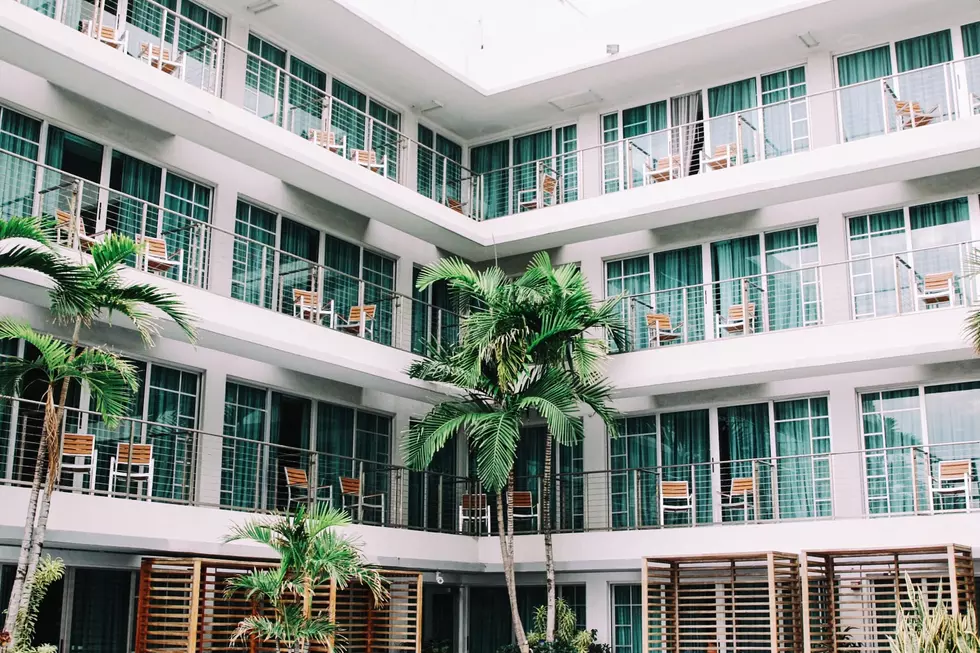
How Hot Is Too Hot? Heat Safety Tips for Lubbock Kids
Summer break means a lot of time outdoors in the West Texas heat. Unfortunately, this tends to put your kids at risk for temperature-related illnesses like heat exhaustion and heat stroke.
Dr. Kristy Bybee, pediatric emergency medicine physician at Covenant Children's Hospital in Lubbock, told me that children should avoid spending time outdoors during the hottest part of the day, between 2 and 4 p.m.
But why?
A child's body handles temperature changes differently than an adult's. They heat up faster and cool down more slowly. This makes them more susceptible to the extreme temperatures we see in the months of June through September. Most experts advise being cautious with your kids once temperatures surpass 90 degrees. Moreover, babies under 6 months of age should not be exposed to high temperatures or direct sunlight unless absolutely necessary.

It's important to note that the 2 to 4 p.m. guideline is for days where temperatures reach the monthly average, which is only 92 degrees here in Lubbock. Over the next few days we'll likely see temps far higher than that. In fact, we will be getting close to record temperatures over the weekend. With triple-digit heat back in the mix, this time frame will extend for a much longer period -- between noon and 10 p.m., temperatures will surpass 90 degrees.
Signs & Symptoms of Heat-Related Illnesses
"Kids should be urinating at least three times a day. We start worrying [when] a child has really, really red skin, they are more tired than normal, [and when] they don't have tears or they're not making sweat," Dr. Bybee stressed. "That's when we are really concerned that the child is severely dehydrated and has very high risk of suffering heat-related injuries like heat stroke and heat illness."
Additionally, Dr. Bybee noted that increased fussiness, vomiting, and the inability to wake your child are more signs that your child has a heat-related illness. In babies, you may also notice that their soft spot and eyes seem sunken. These symptoms require immediate medical attention.
How to Prevent Heat-Related Illnesses
Beside avoiding exposure during peak temperature times, hydration is imperative. Dr. Bybee wants parents to remember that this needs to be more than their regular intake.
"You want to increase the baby's fluids if you're outside," she said. "So if they normally only eat every three to four hours with their formula or breast milk, you need to make sure that they're getting that and something like Pedialyte on top of that to help ensure that they stay hydrated."
This beverage can also be beneficial for replacing crucial electrolytes that are naturally sweat out. Also, remember to avoid sugary and caffeinated drinks. Not all liquids are created equal. These can actually dehydrate you. Additionally, make a point to take regular breaks indoors and seek shade when air conditioning is not available.
Furthermore, parents should dress their kids in loose, lightweight, and light-colored clothing. Applying sunscreen is another imperative step in staying sun safe because if your child does get a sunburn, it will inhibit their ability to cool down. While we want our kids to stay active this summer, we also want them to stay safe. Therefore, make sure that strenuous workouts are done during early morning or late evening hours.
If your child does begin to exhibit any of the symptoms mentioned above and you have a concern, Dr. Bybee urges that you take them to their pediatrician, an urgent care center, or the emergency room.
"If your parent instinct tells you something is significantly wrong with your child, you should listen to that. Most parents are actually pretty good at knowing something is very wrong," she said.
Top 10 Places in Lubbock to Take Your Toddler & Young Kids
Follow These 10 Tips to Keep Your Kid's Skin Sun Safe
Top Nine Reasons Kids End Up in The ER in the Summer Months
More From Talk 103.9 & 1340









